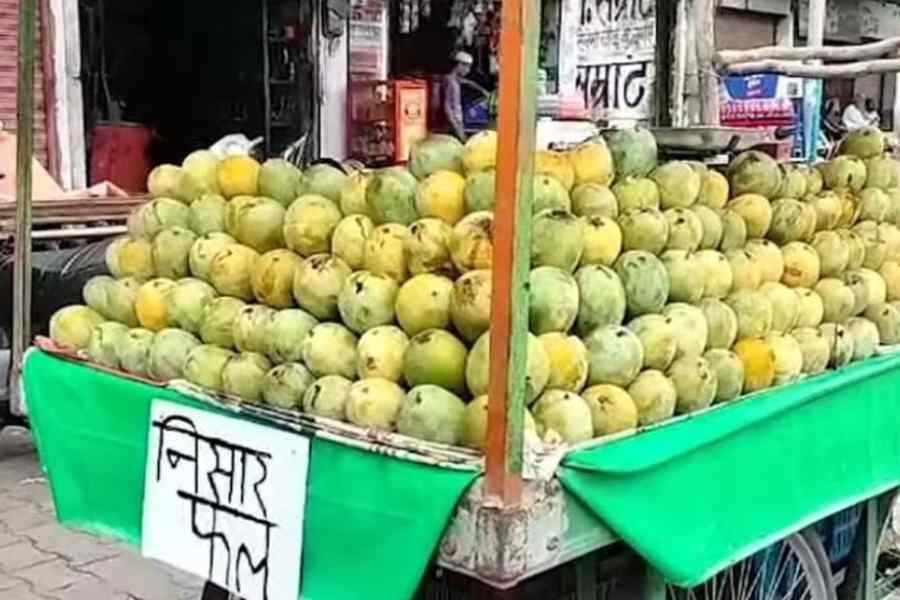Jews in Nazi Germany and German-occupied Europe were made to wear the yellow Star of David during World War II to prominently display their Jewish identity before the public in the years leading up to the Holocaust.
In BJP-ruled Uttar Pradesh in 2024, shopkeepers and vendors have been told to display their names in bold letters in front of their outlets and carts along the Kanwar Yatra route, in a move described by the Opposition as an attempt to target Muslim traders.
Congress spokesperson Pawan Khera called the order “state-sponsored bigotry”.
AIMIM president Asaduddin Owaisi compared the move to Apartheid and Judenboykott, the boycott of Jewish businesses in Hitler’s Germany. Samajwadi Party president Akhilesh Yadav said the directive was a “social crime” and asked the courts to take suo motu cognisance of the matter.
Swami Yashvir Maharaj of the Baghara Ashram in Muzaffarnagar had alleged that Muslim owners had deliberately put up the names of Hindu gods at their eateries along National Highway 58, through which a large number of kanwariyas (pilgrims) pass during the month of Shravan.
Maharaj claimed the kanwariyas dine at these eateries, drawn by the gods’ names displayed there, but sometimes a quarrel breaks out when the pilgrims realise the establishment is owned by a Muslim.
It must remain a piquant — and significant — irony that the Amarnath Yatra, one of the Hindu faith’s most sacred and arduous pilgrimages currently under way in north Kashmir, is only made possible by the participation of members of the local Muslim community.
From the ponywallahs to the palanquin bearers for the elderly, and from tea and snack vendors to the providers of traditional offerings to the icy shrine of Shiva (tulsi leaves and other jadi-bootis), most are Muslims.
According to local lore, the Amarnath cave was discovered by a Muslim shepherd, Buta Malik, in the mid-19th century. According to the lore, he was roaming with his herds in the mountains when he met a saint who took him to the shrine inside the cave.
Kapil Dev Aggarwal, the minister of state (independent charge) for professional education and skill development, had raised the Kanwar Yatra issue with chief minister Yogi Adityanath and asked the officers of Muzaffarnagar, Saharanpur and Shamli districts to look into the matter.
Abhishek Singh, the senior superintendent of police of Muzaffarnagar, said: “We have a 240km kanwar route in the district and we have asked the shopkeepers and vendors to mention their names on their outlets. The decision was taken to avoid any confusion and unpleasant situation that lead to law-and-order issues.”
Ajay Kumar Sahni, deputy inspector-general of police of Saharanpur who issued a similar order on Thursday, said: “The idea is to ensure peaceful completion of the Kanwar Yatra. The kanwariyas would know where they are buying their food and other items from on their way to the pilgrimage.”
The Congress took on the Uttar Pradesh government without mincing words or playing it safe, as has often been the case on such issues. Spokesman Khera said the intent of the order was to “normalise the economic boycott of Muslims”.
Reacting to a news article on the order, Akhilesh wrote on X: “And what if the name of the owner is Guddu, Munna, Chhotu or Fatte? What can you find out from these names?
“The honourable court should take suo motu cognisance of this matter and investigate the intentions of the government and take appropriate punitive action,” the former Uttar Pradesh chief minister said.
“Such an order is a social crime aimed at spoiling the peaceful atmosphere and harmony.”
Saket Gokhale, Trinamool Rajya Sabha member, wrote on X: “I’ve filed a case with the NHRC against Muzaffarnagar police for the shocking order discriminating against Muslims by asking food sellers on the Kanwar yatra route to ‘display their names & names of staff members’.”
The yatra will start on July 22 and conclude on August 2.
The Uttar Pradesh government makes extensive security arrangements and sets up facility centres along the national highways in the region to provide water, medicines and medical assistance to the pilgrims, who walk a long distance to complete the pilgrimage.
Additional reporting by PTI










